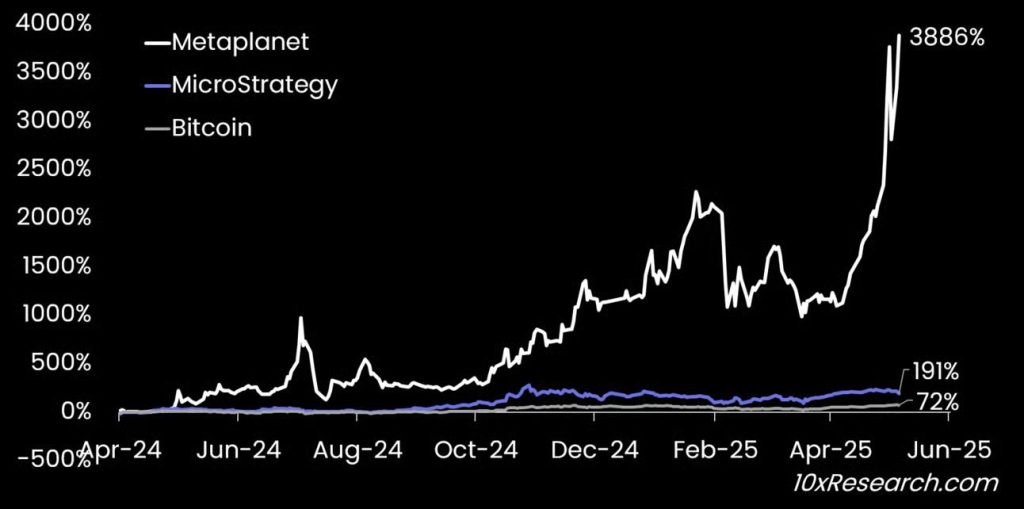From extinctions to deforestation, humanity is paying the ultimate price for allowing the global economy to undervalue nature and natural resources.
Not only has the world been underinvesting in protecting biodiversity for too long, but many economic activities are also actively damaging it, something which should be considered wholesale theft of valuable shared assets.
The destruction of nature defrauds countries and society, jeopardizing the resources that currently generate around half of the global GDP, or an estimated $44 trillion. The impact of losing wild pollinators, marine fisheries, and timber from tropical forests–just a fraction of ecosystem services–could reduce global GDP by an estimated $2.7 trillion annually by 2030.
The economics of our current relationship with nature is bleak. The seminal Dasgupta report on the economics of biodiversity found that our demands on nature now exceed nature’s capacity to supply them, putting biodiversity under huge pressure, and future generations at “extreme risk.”
To maximize deterrents against abusing nature and recognize its costly consequences, countries must urgently outlaw the destruction and degradation of nature. Prosecuting the theft of natural capital as we would any other financial crime would force a global rethink in how nature is valued, grounded in legal and economic accountability that acknowledges healthy ecosystems as a cornerstone of our collective well-being.
As a starting point, the definition of natural asset classes, such as land, must be expanded in to include ecosystem services beyond the “owner” of the land asset to capture its wider impact on all stakeholders. Considering nature–and all its diverse ecosystem services that fall under an organization’s responsible management–an asset class alongside real estate, cash, bonds, and equity would help embed environmental degradation and biodiversity loss as a material risk to businesses and investments.
At the same time, it would position nature as an appreciating asset if protected and sustainably managed. Legal interests, if extended beyond the “owner” of the land, could include all parties with an interest in the preservation of its value, including future generations.
Doing so would hold those causing harm to a higher account and increase the legal incentives for protecting nature. Incorporating nature fully as an asset class would also send clear signals that investing in environmental preservation is not a trade-off but rather a source of new and sustainable benefits that result from protecting critical natural resources into the future. Unlocking such incentives could therefore play a fundamental role in achieving the 17 Sustainable Development Goals by 2030, including reducing poverty and protecting life on land and below water.
Such a shift is starting to take place. The UN General Assembly voted positively on a resolution to see an Advisory Opinion from the International Criminal Court of Justice (ICJ) on countries’ obligations to address climate change signals consequences for inaction.
Last year, the human right to a clean, healthy, and sustainable environment was formally recognized by the UN General Assembly (UNGA), raising expectations of governments and businesses alike to respect, protect and fulfill this right. The European Union is now considering proposals to fine companies at least 10% of their turnover and ban them from accessing public funding for environmental crimes like pollution from shipping. These initiatives are coherent with a draft Directive on Corporate Sustainability set to be adopted this year, which will make human rights and environmental due diligence mandatory, and introduce civil liabilities for non-compliant large companies operating in the 27 member states.
The fight against wildlife poaching has also come a long way. Previously deterred often by only meager fines, illegal poaching is now increasingly linked to and prosecuted as a crime of illegal trafficking and subject to far wider and more serious legal deterrents, including imprisonment.
A number of initiatives and mechanisms are emerging to increasingly educate decision-makers about the responsibilities and liabilities they have to the planet’s natural resources. For example, the Taskforce on Nature-related Financial Disclosures (TNFD) is developing a framework to enable companies to gauge–and report on–their business impact and dependency on nature, as well as nature-related financial risks.
Meanwhile, other movements are continuing to create momentum toward a revaluation of nature and the risks of its destruction. The Stop Ecocide Foundation is engaging with intergovernmental processes towards making the wanton destruction of nature at a long-term, widespread scale an international crime.
Movements to advocate for nature’s right to exist, thrive, and regenerate could have a myriad of positive impacts to slow biodiversity loss across the world. For example, campaigners are calling for the North Sea to be given legal rights to force consideration of the impact of off-shore oil rigs and wind farms on climate change and biodiversity loss. Multiple countries around the world have already started to take steps in this direction in their legal recognition of the rights of nature.
The UN Development Programme (UNDP), through its BIOFIN initiative, is also working with more than 40 countries to develop national biodiversity finance plans, offering 150 viable mechanisms from which governments can choose to protect and invest in nature without economic trade-offs. This includes repurposing nature-harming subsidies to incentivize nature-positive initiatives with greater equity.
Efforts towards greater accountability are in progress, but a unified push is needed from governments, global agencies, civil society, and non-profits to transform the value we place on nature–and shift our perception of the cost of its damage. Material, enforceable liability for the theft or destruction of our natural assets can be a significant lever for change in favor of a sustainable future on a healthy planet.
Midori Paxton is the head of ecosystems and biodiversity at the United Nations Development Programme (UNDP).
The opinions expressed in Fortune.com commentary pieces are solely the views of their authors and do not necessarily reflect the opinions and beliefs of Fortune.
More must-read commentary published by Fortune:
- A recession in 2023 is now inevitable. Layoffs in tech and finance will spread to other sectors
- IBM CEO: ‘Today’s workforce should prepare to work hand in hand with A.I.’
- I am a Starbucks barista who doesn’t qualify for all the wonderful benefits you keep hearing about. We want the ‘different kind of company’ that Howard Schultz promised but failed to deliver
- America’s ‘disease burden’ is getting heavier by the day–and it’s unevenly distributed across states
Credit: Source link










